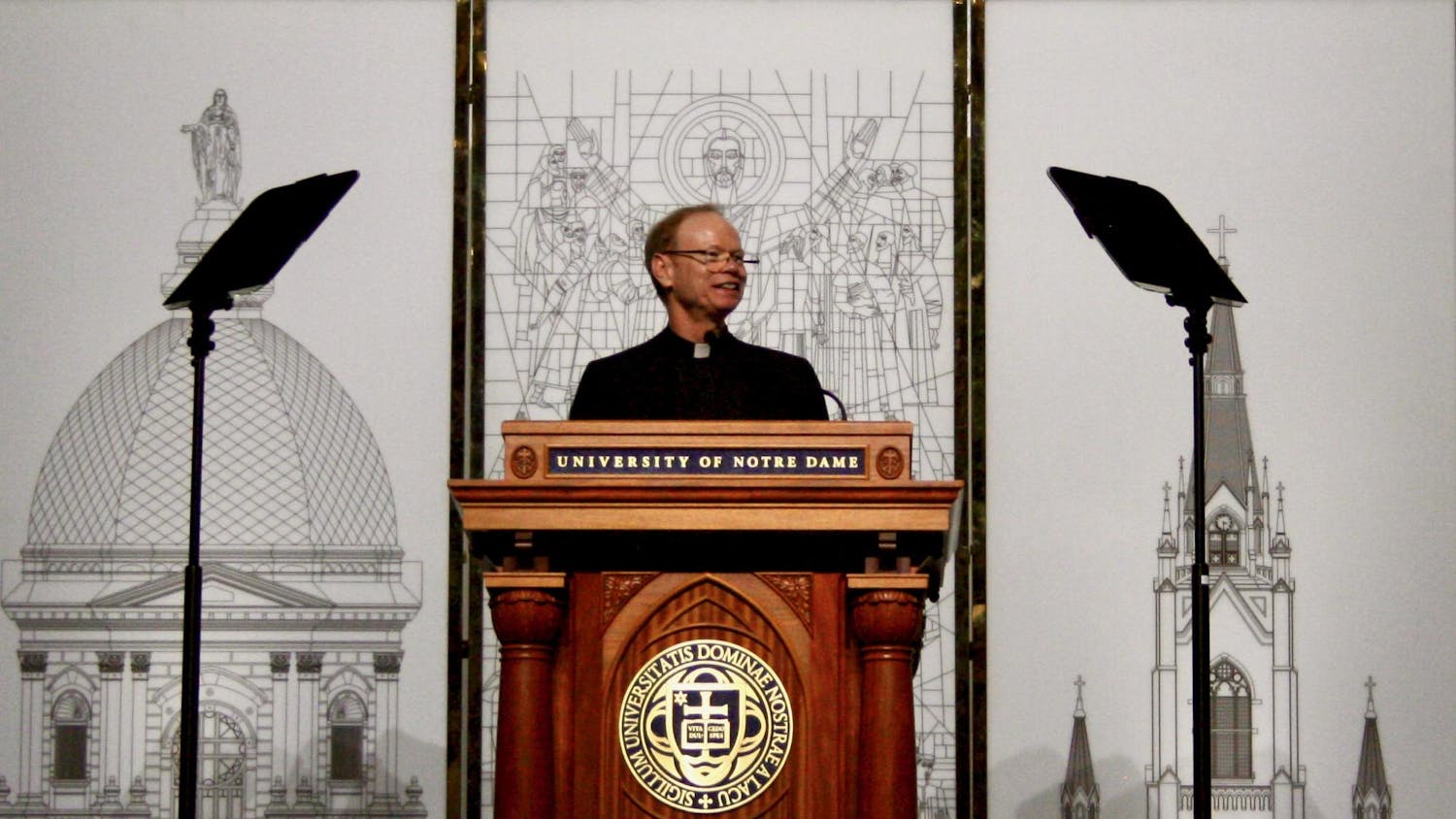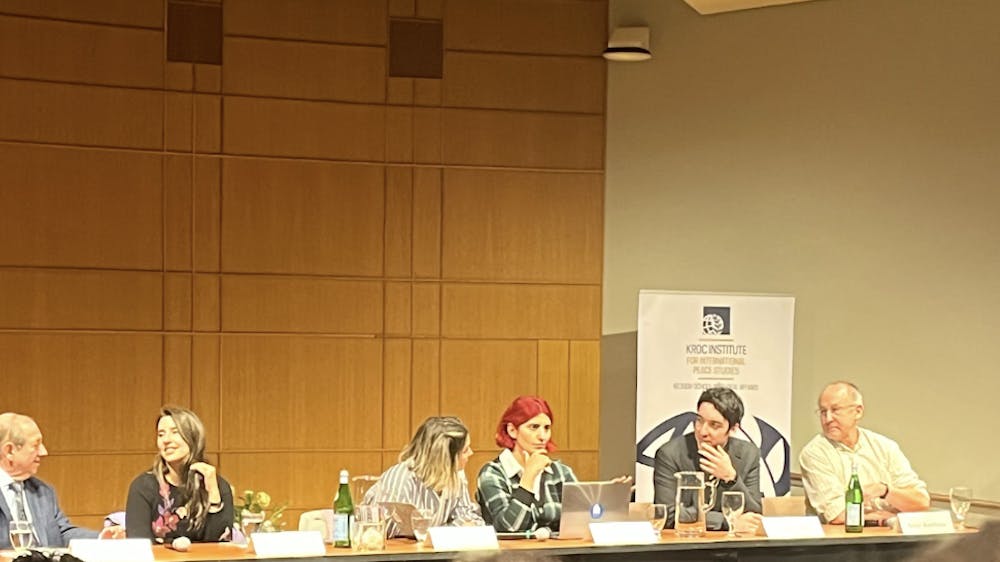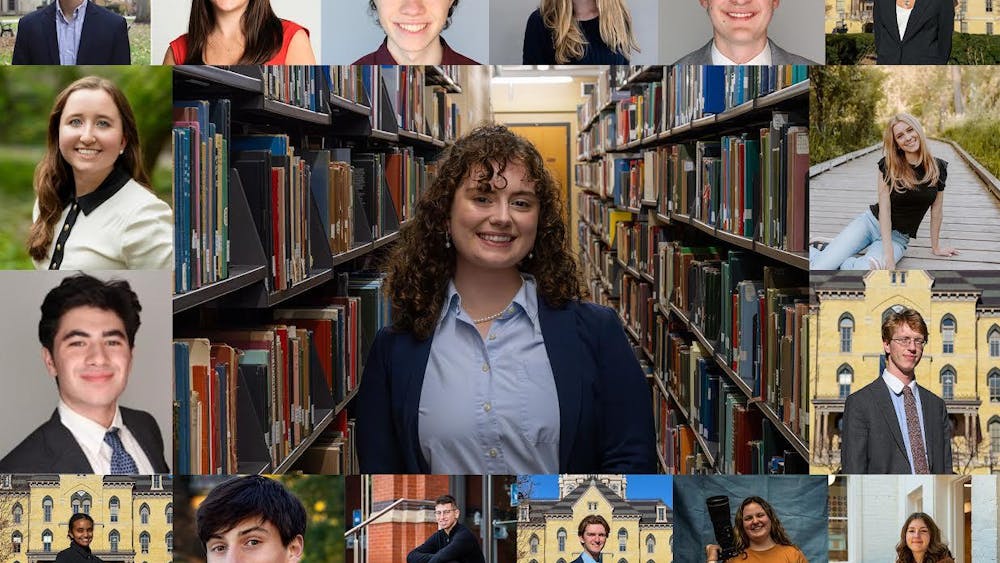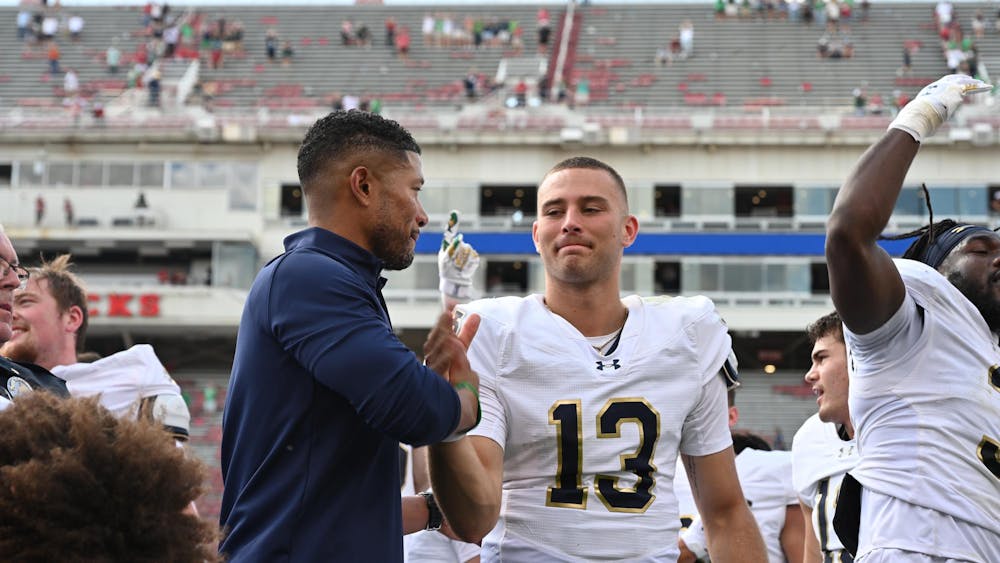"Latino/a Poetry Now," a poetry tour that has visited five universities over a span of two years, will conclude at Notre Dame with readings from four acclaimed Latino poets.
The poetry reading will take place today at 7:30 p.m. in the Eck Visitors Center auditorium and will feature visiting poets Blas Falconer, Raina J. León, Maria Melendez and John Murillo.
Jose Limón, director of the Institute of Latino Studies, said the poets' visit would showcase a different facet of Latino culture.
"At a time when Latinos are much in the news for largely sociological and political reasons, we should also remember them as makers of poetry, as will be wonderfully exemplified by this gathering of prime poetic talent," Limón said.
Francisco Aragón, director of Letras Latinas and curator of the series, said a goal of the series is not just to raise awareness of Latino poetry, but also to show the variety of approaches and styles among Latino poets.
"One of the things I hoped to accomplish with this initiative was to demonstrate the aesthetic diversity of contemporary Latino poetry," Aragón said.
Aragón said he edited "The Wind Shifts," an anthology of modern Latino Poetry in 2009 and planned the tour "Latino/a Poetry Now" to complement the anthology. He said he chose the 15 poets who participated in the series to demonstrate the diversity and experimentalism of new Latino poetry.
The four poets who will be featured in today's event exemplify this diversity, which is a reflection of the diversity within the overall Latino community, Aragón said.
"I hope that what people will come away with is that the four poets that we'll be presenting are very different," Aragón said. "I think one of the things they'll notice as well [is that] each poet is very different in their own way, and yet they're all under this banner of Latino poetry.
"One of the messages that we try to convey is that the Latino community, the Latino population is not a homogenous population, it's a very diverse population including its art making and its poetry."
Aragón said students often experience poetry in a completely different way when they listen to a poet read rather than read the words silently to themselves.
"Oftentimes when I teach a class and I ask, 'Who here has been to a poetry reading?', very few hands go up," he said. "We think of theatre as sort of a form of literature in performance but we don't often think of poetry as being literature in performance, and oftentimes students have come up to me and said that hearing the poet read his or her work out loud gives them insights that they didn't have when they were encountering the work just on the page."
Aragón said the four poets visited two courses in Romance Languages and Latino Studies yesterday and would visit his own "Latino/a Poetry Now" class this morning. He said the poets would likely appreciate the chance to talk with students who have read their work.
"My hope is that [the poets] will have an enriching time dialoguing with students who have been reading their work," he said. "They're going to be encountering people who have been reading and studying and writing about their work."
Aragón said today's poetry readings would be the culmination of more than four years of planning and executing "Latino/a Poetry Now."
"This particular initiative grew out of an event we did with the poetry society of America in Los Angeles in 2009," he said. "We did what we called a 'Latino Poets Online' roundtable discussion which we published on the website of the Poetry Society of America, and because that collaboration went really well ... my counterpart at the Poetry Society of America pitched the idea of doing some programs at universities."
The series kicked off at Harvard University in 2012 and toured to Georgetown University, Macalester College and the University of Arizona. Poets visiting those schools visited classes and met with Latino student groups, Aragón said.
Before each stop, the poets also read each other's works and participated in an online discussion. Aragón said he posts the transcripts online and hopes to compile them into a book.
"Our long term goal for those roundtable discussions is for them to actually become a book with poetry samplings from each poet," he said.
Letras Latinas, the literary program of the Institute for Latino Studies, partnered with the Poetry Society of America to bring the event to campus, according to a University press release.









